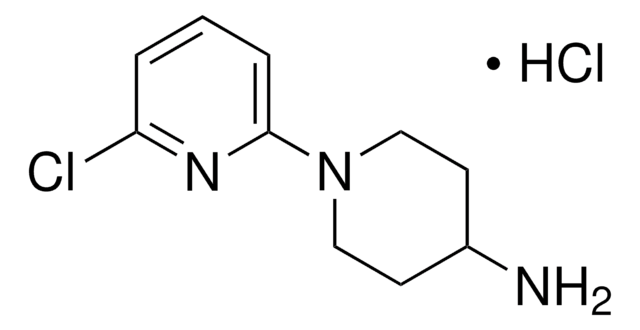S8761
Sodium Bicarbonate
Solution (7.5%), sterile-filtered, suitable for cell culture
Sinónimos:
aqueous sodium bicarbonate
About This Item
Productos recomendados
product name
Sodium bicarbonate solution, solution (7.5%), sterile-filtered, BioReagent, suitable for cell culture
sterility
sterile-filtered
product line
BioReagent
form
solution (7.5%)
technique(s)
cell culture | mammalian: suitable
impurities
endotoxin, tested
pH
7.8-8.2
storage temp.
2-8°C
SMILES string
[Na+].OC([O-])=O
InChI
1S/CH2O3.Na/c2-1(3)4;/h(H2,2,3,4);/q;+1/p-1
InChI key
UIIMBOGNXHQVGW-UHFFFAOYSA-M
¿Está buscando productos similares? Visita Guía de comparación de productos
Categorías relacionadas
General description
Application
- as a component of Hanks′ buffered salt solution (HBSS) and recording medium for culturing of tissue explants from rats or mice
- as a component of Dulbecco′s modified Eagle′s medium (DMEM) to culture mice tissue explants
- as a component of Minimum Essential Media (MEM) to study the cytotoxicity against human colorectal adenocarcinoma cells and mammary gland adenocarcinoma
- to prepare collagen mix droplets for 3D collagen sprouting assay
- to prepare collagen matrix for rat epidermal keratinocyte (REK) organotypic culture
Preparation Note
related product
Storage Class
12 - Non Combustible Liquids
wgk_germany
WGK 1
flash_point_f
Not applicable
flash_point_c
Not applicable
Certificados de análisis (COA)
Busque Certificados de análisis (COA) introduciendo el número de lote del producto. Los números de lote se encuentran en la etiqueta del producto después de las palabras «Lot» o «Batch»
¿Ya tiene este producto?
Encuentre la documentación para los productos que ha comprado recientemente en la Biblioteca de documentos.
Los clientes también vieron
Protocolos
3-D Culture Matrix™ Collagen I facilitates cellular growth and differentiation in vitro, offering versatile applications in biomedical research.
3-D Culture Matrix™ Collagen I facilitates cellular growth and differentiation in vitro, offering versatile applications in biomedical research.
3-D Culture Matrix™ Collagen I facilitates cellular growth and differentiation in vitro, offering versatile applications in biomedical research.
3-D Culture Matrix™ Collagen I facilitates cellular growth and differentiation in vitro, offering versatile applications in biomedical research.
Nuestro equipo de científicos tiene experiencia en todas las áreas de investigación: Ciencias de la vida, Ciencia de los materiales, Síntesis química, Cromatografía, Analítica y muchas otras.
Póngase en contacto con el Servicio técnico








